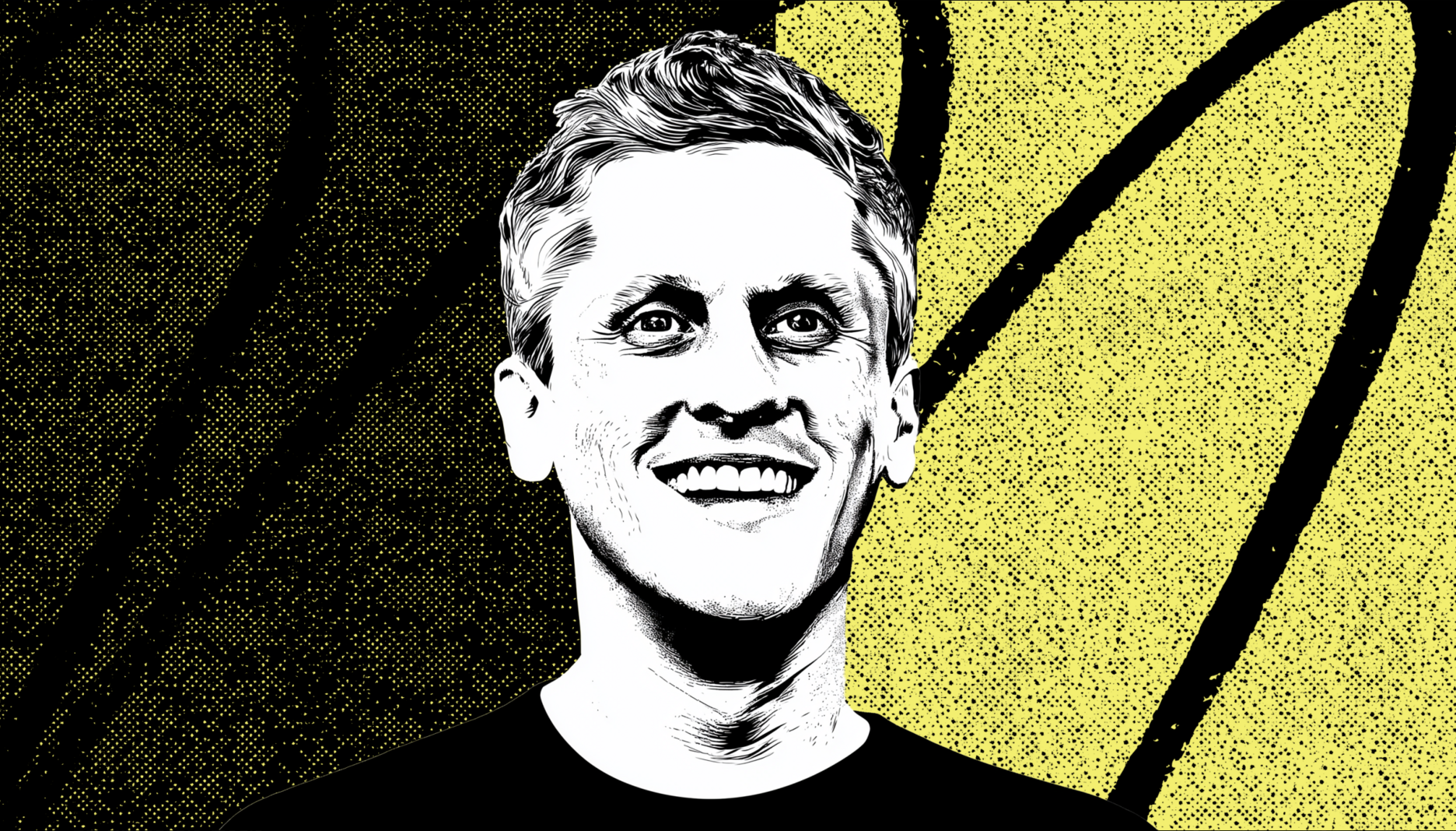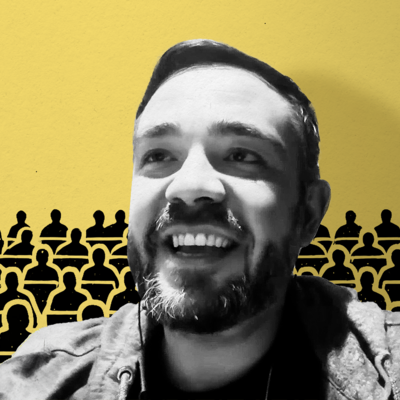
TL;DR: Today we’re releasing a new episode of our podcast AI & I. Dan Shipper sits down with Aaron Levie, the cofounder and CEO of Box, a platform for businesses to securely manage and collaborate on all their content in the cloud. Watch on X or YouTube, or listen on Spotify or Apple Podcasts. Here’s a link to the episode transcript.
Was this newsletter forwarded to you? Sign up to get it in your inbox.
Your new interns don’t eat lunch. They never try to sneak out of the office early or call in sick, but sometimes—for no apparent reason—they lie to your face. They save you huge amounts of time and let you accomplish more than you could before, but they need your mindful supervision.
This, according to Aaron Levie, is the new reality of every knowledge worker’s role: managing a team of AI agents.
Levie is the co-founder and CEO of Box, a platform that helps businesses to securely manage and collaborate on all their content in the cloud. He was among the first wave of tech CEOs to declare their companies “AI-first” in memos that made the rounds on X. In this episode of AI & I, Dan Shipper talks to Levie about why jobs aren’t going away, the new shape of work, and what it takes to build an AI-first company from the inside.
You can check out their full conversation here:
If you want a quick summary, here are some of the themes they touch on:
Why AI won’t take your job
Levie is outspoken in his support for AI, but he doesn’t believe it spells the end of human jobs. According to him, AI excels at automating “tasks,” but “jobs” encompass a lot more than that. They’re a “collection of tasks” that require judgment, collaboration, and context. And while AI agents expand what we might call a “task,” they can never fully subsume the role of the human who weaves those tasks together to create business value. When a software engineer uses an AI agent to write a chunk of code, the engineer still has to decide whether the feature is worth shipping, review it with a product manager, and integrate it into a broader system.
Levie also thinks Jevons paradox—the 19th‑century idea that when something becomes cheaper or easier to use, demand for it rises—helps explain why AI won’t shrink the number of available jobs.
In his view, most companies are already doing less work than is economically useful because they’re constrained by time and the cost of labor; if those constraints ease, the volume of work expands. Levie takes the example of lawyers: If AI lets his legal team review contracts twice as fast, he wouldn’t cut the number of lawyers he employs in half. He’d run that process at twice the speed, reduce bottlenecks, respond to customers faster, and probably grow sales, which in turn could lead to hiring more people.
What an AI maximalist thinks the future of work looks like
Levie believes that in the age of AI, the role of the individual contributor is starting to resemble that of a manager—someone who allocates tasks, coordinates agents, and exercises judgment. It’s a shift Dan has written about before: the move from a knowledge economy to an allocation economy, where work is about directing how intelligence—human or artificial—is applied. Levie compares this transformation to the original shift from paper to digital workflows, when computers became commonplace. With AI, we’re undergoing another foundational shift, and according to Levie, it’s happening much faster.
An insider’s look at building an AI-first company
For companies trying to take AI seriously, Levie has a few lessons from the front lines at Box:
- Frame AI as a tool for growth. Make it clear from the beginning that AI isn’t about cutting jobs or saving money; it’s about doing more, moving faster, and serving customers better. At Box, Levie positions AI as an accelerant, not a threat: “This is something that we should be on the forefront of because… it’s going to let us actually do more as an organization.”
- Learn from AI in public. Everyone in the company should be using AI every day—and sharing what they learn. At Box, Levie has institutionalized this “show and tell” at their Friday all-hands, where someone demos how they’ve used AI to automate a workflow, like speeding up compliance checks or streamlining a sales process.
- Build a culture that thinks from first principles. Levie says he’s started to see more people at Box question long-standing assumptions about speed—specifically, why certain projects take so long. When a timeline comes back with a three- or four-week estimate, the instinctive follow-up is increasingly: “Why can’t this be done in two days?” That kind of first-principles thinking encourages teams to rethink how work happens, and whether AI might offer a faster, smarter way forward.
That said, Levie wonders if Box is constrained by the realities of being an established company. Startups with no legacy processes or ingrained workflows often move faster with AI because they’re not layering new tools onto old habits;they’re building from scratch. When he talks to early-stage teams—five, 10, 20 people—he sees a fundamentally different wiring: Their workflows are agent-first, prompt-driven, highly documented, and designed from the beginning to take full advantage of AI. Thinking out loud, he says: “Do I have to maybe go and find areas where [Box has] a completely fresh start [and] we go and re-engineer something?”
What do you use AI for? Have you found any interesting or surprising use cases? We want to hear from you—and we might even interview you.
Here’s a link to the episode transcript.
Timestamps
- Introduction: 00:01:30
- Why AI won’t take your job: 00:02:36
- Jevons paradox and the future of work: 00:06:42
- How Aaron’s experience with the cloud era shapes his view of AI: 00:10:40
- Why every knowledge worker is becoming a manager of AI agents: 00:19:44
- What Aaron’s learned from bringing AI into every corner of Box: 00:25:21
- What’s overhyped in AI today: 00:33:57
- How Aaron balances everyday execution with innovation: 00:43:31
You can check out the episode on X, Spotify, Apple Podcasts, or YouTube. Links are below:
- Watch on X
- Watch on YouTube
- Listen on Spotify (make sure to follow to help us rank!)
- Listen on Apple Podcasts
Miss an episode? Catch up on Dan’s recent conversations with founding executive editor of Wired Kevin Kelly, star podcaster Dwarkesh Patel, LinkedIn cofounder Reid Hoffman, ChatPRD founder Claire Vo, economist Tyler Cowen, writer and entrepreneur David Perell, founder and newsletter operator Ben Tossell, and others, and learn how they use AI to think, create, and relate.
If you’re enjoying the podcast, here are a few things I recommend:
- Subscribe to Every
- Follow Dan on X
- Subscribe to Every’s YouTube channel
Rhea Purohit is a contributing writer for Every focused on research-driven storytelling in tech. You can follow her on X at @RheaPurohit1 and on LinkedIn, and Every on X at @every and on LinkedIn.
We build AI tools for readers like you. Write brilliantly with Spiral. Organize files automatically with Sparkle. Deliver yourself from email with Cora. Dictate effortlessly with Monologue.
We also do AI training, adoption, and innovation for companies. Work with us to bring AI into your organization.
Get paid for sharing Every with your friends. Join our referral program.
The Only Subscription
You Need to
Stay at the
Edge of AI
The essential toolkit for those shaping the future
"This might be the best value you
can get from an AI subscription."
- Jay S.
Join 100,000+ leaders, builders, and innovators

Email address
Already have an account? Sign in
What is included in a subscription?
Daily insights from AI pioneers + early access to powerful AI tools









.png)
.31.48_AM.png)
Comments
Don't have an account? Sign up!